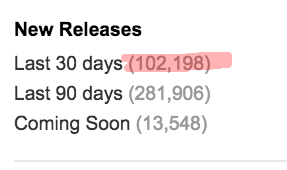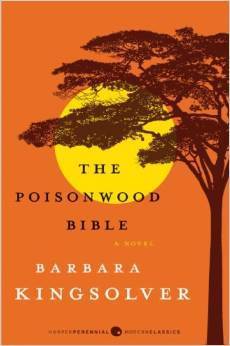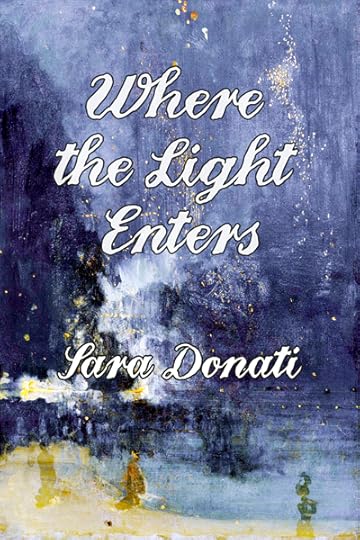Rosina Lippi's Blog, page 7
January 18, 2017
Bubble-gum pink vanity, and karma
It’s as big as the continent of Asia.
If I mention this to other women my age, I don’t get the empathy I’m hoping for. They say “but you’ve got so much hair” and “only you notice it” and “wear a hat” or they just grin and shrug and sometimes there’s a smirk. Women my age can be merciless. Okay, everybody can be merciless, but women of my age are sharp sighted and willing to go for the pink spot.
I have never been beautiful. At my best I was attractive in a certain way. But I always, always had good hair. Thick to the point of driving hairdressers crazy, naturally curly/wavy. Shiny.
 See this photo? Me at seven, an Italian Catholic kid on her way to First Communion. It took an hour to tame my hair so the veil would lie properly. You can see the bulk of it, and that it was doubled up.
See this photo? Me at seven, an Italian Catholic kid on her way to First Communion. It took an hour to tame my hair so the veil would lie properly. You can see the bulk of it, and that it was doubled up.Some women will tell you that the good part of menopause is that the hair on your legs thins down to nothing so you don’t have to shave anymore. Sure, except you need that extra time now to deal with your bald spot. Or your new mustache.
Here’s how serious I am: I’d rather have an old lady mustache to deal with than a bald spot.
Didn’t realize I was so vain, did you? In my defense: this was my one vanity. So now, a confession and a demonstration of how karma works.
When I was living in Austria I dated somebody for over a year. Tall, skinny, blond, thinning hair even then. Some years later I happened to go back for a visit just when he was getting married, and he invited me to the wedding. And I went and had a good time. He married a former student of his (yes, I know, bad juju), a very exuberant, very young woman with a beautiful complexion and gorgeous hair. Lots of hair. A lot like mine. She was proud of her hair, too, and she liked to toss it. I never tossed my hair. Honest.
A few years after that when I was back for a visit — and the former boyfriend had achieved complete balditude — I ran into her. She was pushing a baby carriage, and in it was her daughter, about a year old. A pretty baby, but bald as a boiled egg. So I said all the things you say about a healthy happy baby and then I said with an utterly straight face:
“Oh look, she’s got [her father’s] hair!”
The look on her face I will never forget. I had zeroed in on the one thing about her baby that had to be a disappointment to her and she was shocked at my temerity. She was outraged. She was stymied. She sputtered something about how her daughter’s hair would come in, and marched off.
The day I noticed the bubble-gum pink island at the crown of my head, I truly understood karma.
So please don’t comment to tell me that I look GREAT, because that will only irritate me. Don’t tell me about the hair-in-a-can product that your great aunt Georgia loves. And please don’t tell me to grow old with dignity. There is a long list of things I’m being dignified about. I reserve the right to be emotional about this one thing that has been central to my identity for all my life. Until ten years ago.
On the other hand, if you have a magical cure for what’s ailing me, first, quick, get a patent because you are going to be filthy rich. Then tell me about it.

January 12, 2017
In which I embrace and celebrate my historical-geographical nerdiness
It’s amazing sometimes what you come across. For anyone interested in France, the history of France (or Europe), and maps, this is pretty wonderful. Bless the Wikipedians, say I.
Watch this dynamic map and it will show you how the borders of France changed over time, lands lost and gained. It would be even more interesting if they had links to the wars that were responsible for the shifts, but that would be a fun little project at some point when I’m bored.
I embrace and celebrate my historical-geographical nerdiness. Nerditude?
By http://commons.wikimedia.org/wiki/Use... [CC BY 3.0 (http://creativecommons.org/licenses/by/3.0)], via Wikimedia Commons

January 8, 2017
lend a hand to authors (young and old)
 Like everybody else I have to limit the amount of time I spend wandering around in the ether. There are so many things to read and keep track of, I could easily spend the entire day doing nothing else. In these difficult times especially it feels like there’s an emergency every hour on the hour, so getting stuff done is even harder. Add depression and anger (also about recent events) and it’s takes some real willpower to persevere.
Like everybody else I have to limit the amount of time I spend wandering around in the ether. There are so many things to read and keep track of, I could easily spend the entire day doing nothing else. In these difficult times especially it feels like there’s an emergency every hour on the hour, so getting stuff done is even harder. Add depression and anger (also about recent events) and it’s takes some real willpower to persevere.
And yet, here I am asking you to read something new.
Young writers — young people in general — are having a tough time. I see this up close and personal with my daughter and her friends. A college degree doesn’t mean much in this economy (and yes, it’s still pretty bad, especially for the very young and the 50+ crowd).
Jason Howell is a talented writer who runs a website where writers chime in on questions he poses. One of his talents is asking interesting questions, so I generally get stuck there for a half hour or so when I stop by. Once in a while I participate by contributing an answer. Please stop by and see what he has to offer. His website: Howlarium; his Twitter account: Jason Howell; he’s also on Goodreads. Lend a hand. I can’t hurt and it might help.
 See this ad to the right? Yes, I’m changing the subject, but not by very much.
See this ad to the right? Yes, I’m changing the subject, but not by very much.
Bookbub seems to forget that if they put authors out of business, they will have nothing to sell. Isn’t that the definition of a parasite? How do authors counter this kind of mind-set?
Marketing.
Please remember that like almost every other novelist out there, there is almost no marketing coming from my publishers so somebody else has to do it, and that person is, of course, the author. We scribblers depend to a very large degree on word of mouth and the goodwill of our readers. I have wonderful readers, but you’re all very busy, too. I hope you’ll understand why I post this reminder of the things you can do to help me keep writing:
Hit ‘like’ here and/or on Facebook (see the bottom of this post or the right hand column).
Hit ‘share’ for Facebook and/or Twitter.
Save something you see here to your Pinterest pages.
Share a post you like by email.
Post a review at Amazon or Goodreads or Barnes & Noble or your own website. Mention something I wrote on Facebook or Twitter or your favorite discussion forum.
And that’s it. The end of the regularly scheduled fundraiser.

January 7, 2017
Writers Resist
You may have heard about Writers Resist, and if not, here’s the skinny, from their website:
Our democracy is at risk. Growing public cynicism and an alarming disdain for truthfulness is eroding our most dearly held democratic ideals. As writers we have tremendous power to bypass empty political discourse and focus public attention on the ideals of a free, just, and compassionate society….
Throughout the US and in other countries, writers are organizing their own Writers Resist events on Martin Luther King Jr.’s birthday, January 15, 2017.
Invited speakers will read from a curated selection of diverse writers’ voices that speak to the ideals of Democracy and free expression. The public is encouraged to attend.
I’m cynical by nature, so I’ll just admit that while Writers Resist is an appealing idea, it doesn’t seem to me to promise very much in the long-run. It’s not as though we’ll have any particular insight into strategies for resistance. We’re just one more group of people who are frightened and angry and worried.
But it doesn’t hurt, and it may well help in some ways for writers to get together and invite the rest of the non-writers in their communities to come listen to them read and talk. So I offered my help and ended up creating the poster for the Bellingham Writers Resist Event. And here it is.
It may just be depression that’s weighing me down, but this whole thing makes me feel weary.

December 28, 2016
Cranky Pants: The Chef
 If you are a novelist and you live in a small town you run into people who have read your novels now and then, at the grocery store, at signings, when you stop by the neighbor’s place to ask about the missing newspaper delivery boy, at parties, on the bus.
If you are a novelist and you live in a small town you run into people who have read your novels now and then, at the grocery store, at signings, when you stop by the neighbor’s place to ask about the missing newspaper delivery boy, at parties, on the bus.
It makes sense to be polite and respectful, no matter who you are. No matter what kind of questions they ask you. But sometimes it’s really hard. Now, every profession has a list of questions they fear. For physicians I assume it goes like this: you’re browsing the dessert table at a wedding and the groom’s great uncle charges right up and challenges you: Would you look at this gigantic (fill in the blank) on my [foot, head, rear] and tell me what it is?
The thing about questions from readers or would-be readers is that they are not always neutral or friendly. Once in a while you get a suspicious character who is sure you have cheated your way into publishing. From this person you may get a conversation that feels a little like an interrogation.
Sometimes you cannot get a handle on your temper.
This conversation didn’t go exactly this way. But I wish it had.
Person: So, you’re a writer, I hear. You don’t look like a writer.
Me: I get that a lot.
Person: What exactly do you write?
Me: Mostly novels.
Person: Novels! Really? Novels! Have any of them ever been published?
Me: Quite a few, actually.
Person: Oh really. Are you one of those Amazon self-published types?
Me: I am not. What do you do for a living?
Person: I’m a chef.
Me: Really? Have you ever cooked anything? Do you make money doing that or do you just cook for yourself? What kind of cooking do you do? Do you cook real food? Would I have eaten anything you’ve cooked? I’ve been eating pretty much every day for my whole life so that makes me an expert on food, and in fact I think I’ll be a cook. But I’ll only cook real food. I’m not interested fashionable stuff, it’s critical approval I’ll be after. And a television show.
Person:
Me: Thanks, you’re a real inspiration.

December 20, 2016
Wise Women
I would guess that most writers are interested in what other writers have to say about the process of writing. Everyone needs validation, after all. So when I come across something an author said that strikes me as especially relevant or interesting (or funny, or inspiring), I add it to the quotes collection for this weblog. They show up in the right hand column under wise guys.
Of course many of the quotes are by women authors, but somehow I can’t give up on wise guys as a title. There are too many complicated associations that work for me. And wise guys and gals would be awful. So I’ll leave the title as is, but I wanted to make those of you who still stop by here (because I don’t post very often — I tend to do that on FaceBook these days) aware that there are some gems available for your inspiration. So for example, one I love especially:
 …writing stories is one of the most assertive things a person can do. Fiction is an act of willfulness, a deliberate effort to reconceive, to rearrange, to reconstitute nothing short of reality itself. Even among the most reluctant and doubtful of writers, this willfulness must emerge. Being a writer means taking the leap from listening to saying, ‘Listen to me.’
…writing stories is one of the most assertive things a person can do. Fiction is an act of willfulness, a deliberate effort to reconceive, to rearrange, to reconstitute nothing short of reality itself. Even among the most reluctant and doubtful of writers, this willfulness must emerge. Being a writer means taking the leap from listening to saying, ‘Listen to me.’
Jhumpa Lahiri
Notes from an apprenticeship. The New Yorker. 13/20 June 2011
If you happen to notice a quote you think I’ve got the wrong attribution for, or if you know a source and I’ve left it out, please do leave a comment. I’d appreciate it.

December 19, 2016
Crowdsourcing your Novel
 fighting tooth and snail from The Marginalized Art of Snail-Fighting in Medieval Europe; because publishing has always been crazy
fighting tooth and snail from The Marginalized Art of Snail-Fighting in Medieval Europe; because publishing has always been crazyTwo years ago Mick Rooney at The Independent Publishing Magazine reviewed a British publishing outfit called Unbound, which is a new approach based on crowd-sourcing. That is: you go to their site, read about an author and a book that author is proposing to write, and if you really want to read it, you pony up some money. When the funding goal is met and the book is written, it goes to press and eventually you get a copy.
I vaguely remember reading about Unbound and wondering if it might actually work. Just today it came back to mind because Raphaela Weissman, a local author but someone I don’t know personally, emailed to say that she was launching a campaign through Unbound for her novel Monsters. Raphaela originally had an agent and got great feedback from publishers, but in the end nobody took Monsters on, and thus she decided to proceed with the help of Unbound. Her launch page is here. With all this in mind, I went back to find and re-read Rooney’s review of Unbound.
It’s going to take me a little while to figure out how I feel about Unbound and that needs to happen before I can commit to anything.
If I knew Raphaela personally I might be tempted to contribute to her crowd-sourcing of the novel just to be supportive of a friend. And that is probably Unbound’s major weakness when it comes to lesser known writers. Monsters may be a fantastic novel, but whether or not it ever sees the light of day depends on how well Raphaela can push the crowd-sourcing. She has about 90 days to hit the mark. The review at IPM summarizes:
Since Unbound was founded in 2011 [this article was written in 2014], it has successfully funded and published 54 books. There are currently 5 books funded by more than 50%, and 36 books below the 50% funding target. According to this article in the Telegraph UK, each funding project on Unbound needs the support of about 2,500 reader/patron pledges — ranging between £10 and £250. There are various levels of support depending on the amount of each pledge; typically, £10 would provide the reader with a digital copy and access to the author’s community ‘shed’; £20, an additional limited edition hardback; the reader’s name mentioned at the end of the book as a supporter; a signed hardback edition; tickets to the launch party; or a personal appearance by the author (about £750).
Unbound is interesting because it at least is honest about the way it operates. The author is responsible for raising the money necessary to get the book published. They estimate the cost for everything (except the author’s time, which is not calculated and no advances on royalties are paid), come up with a figure, help the author with the launch webpage, and then wait to see if s/he can make it happen. Once the author reaches a certain stage — somewhere about 70 percent of the estimated cost to publish — they step in.
Traditional publishers go about this from the other end. They never tell the author what they think it will cost to publish the book. Instead they offer an advance and assume the costs of publication up front. So for example they might estimate that it will cost them $25,000 to get a book into print and out into the marketplace (and don’t ask me to verify that number; I’m basing it on the numbers Unbound uses). They assume that cost and offer the author money as well, let’s say $20,000 advance on royalties (which in this day and age would be very good). So that’s about 45K the traditional publisher commits before hand. If the book flops, that’s money the publisher loses. The author is unlikely to ever sell another book to a traditional publisher, but that 20K advance doesn’t have to be paid back.
As soon as the author finished the book and hands it over, the pressure begins. Once public relations teams would take over at this point, but these days — unless you are already a superstar, in bookselling terms — you are expected to be directly and deeply involved in marketing through social media. If the book fails it may be because it wasn’t strong enough or the timing was bad, but it will also be because the publisher put no money into promoting the book. Without promotion, it’s almost impossible to for a novel from a new author to gain a readership. I’ve said before that I truly dislike and resent the way publishers burden writers with marketing and selling their work. For most of us it’s torture and generally not very effective — unless they are already widely read with a large, loyal readership. And then the whole enterprise is beside the point, anyway.
So I’m not sure what to think about Unbound. I have a large and loyal readership, but even so I find it hard to imagine that a minimum of 2,500 people would invest a minimum of $20 before I’ve ever finish writing the novel.*** Another thing: without an advance, how do I pay the bills while I’m writing the novel? The traditional publisher has that much confidence in me, at least. Of course, here’s where Unbound beats the traditional publisher. Penguin or FSG gives you somewhere between ten and fifteen percent of the amount the book sells for, but with Unbound you get 50 percent — an even split with the publisher.
Unbound is trying something different and attempting to move beyond a model of publishing that doesn’t really work anymore. For that they deserve credit. How well they are succeeding is something I can’t tell without investing a lot of time in reading more about them, their authors, and the individual case histories. Something I can’t afford to do because I have a contract, and a novel to finish.
In the meantime I wish Raphaela Weissman well and I truly hope that the Unbound approach works for her. I’m just not sure that I can climb on board at this point.
***NOTE: Please do not comment to tell me that I’m right or wrong about this; I’m not considering crowd-sourcing, and not looking for encouragement in that direction.

November 29, 2016
Here in one small image: the end of publishing
 Or at least, the end of publishing as we understand it. Consider this fact: In one month there were more than 100,000 new book releases on Amazon Kindle.
Or at least, the end of publishing as we understand it. Consider this fact: In one month there were more than 100,000 new book releases on Amazon Kindle. I took this screen capture last week and I’ve been thinking about it ever since. Two extreme ways of looking at this:
I took this screen capture last week and I’ve been thinking about it ever since. Two extreme ways of looking at this:
One: Electronic self-publishing has democratized the book industry. It’s an embarrassment of riches.
Two: We are caught up in a tidal wave with no refuge in sight. It’s an embarrassment.
There’s a weird disconnect in the mind of most of the reading public. Pat doesn’t want to spend $15 on a novel, so s/he jumps into Kindle Land, wanders around, and exits some time later having paid $1.99 for a novel that will be tolerable, or vaguely amusing, or awful, or (this is also possible) excellent.
The author of the $15 novel is an endangered beast in this new landscape, and still Pat finishes the $1.99 novel and dreams of giving up the day job to be a novelist. And not just any novelist, but a rich one. Someone who knows Oprah’s cell number and who has a film agent. The fact that Pat is unwilling to pay more than $1.99 for a novel should put a crimp in these day dreams.
But this is not happening, as is plain to see because in one month, 100,000+ new books appeared on Kindle. And there are lots more in the pipeline, waiting to be sucked into the tsunami.
It would be very useful to get this huge number broken down and put in context. Here’s an inquiry for Amazon that I might send, but they will never answer.
Dear Amazon:
I am researching the career and life cycle of the modern American novelist and require data for quantitative analysis. Your assistance would be very much appreciated and duly acknowledged in the author’s notes.
The data I require:
Total number of new book releases for the years 2000 ______, 2010 ____ and 2015 ______
For each of these years, I would like the percent published in paper and electronically.
For each year and category (paper/electronic), please indicate what percent were published by established houses, and what percent were self-published.
Now the same figures, but limited to fiction for the years 2000, 2010 and 2015.
If Amazon were to cough up these numbers (and please don’t hold your breath) we would have the makings of a really interesting discussion. As it is, I can only give you my impressions.
Publishers are in trouble, and will continue to be in trouble until the whole industry self-corrects. Publishers are not particularly good at introspection, so this is another area where you should not hold your breath.
Authors are in trouble because not only is the market saturated with cheap books, the publishers have no interest in helping midlist authors keep their heads above water. It’s sink or swim. If 50,000 new novels are released over a two or three month time period, how will a reader ever find the novel you just published? What are the odds that your novel will even make it onto a shelf in a brick and mortar bookstore? Answer: poor.
And that’s where we find ourselves. On the bright side, you’ll be busy for the rest of your life trying to read your way through the mountains novels that are piling up, right now.

revealing words on words
 There are many things to admire about Barbara Kingsolver’s work. She has written some novels that I think about all the time, even years after first reading them. Her people and their stories crawl into my head and make a permanent home for themselves there, settling in between Aunt Helen’s overgrown garden at sunrise in the hottest days of summer and the sound of chalk squeaking in Sister Peter Joseph’s fourth grade classroom. What more could any author ask for?
There are many things to admire about Barbara Kingsolver’s work. She has written some novels that I think about all the time, even years after first reading them. Her people and their stories crawl into my head and make a permanent home for themselves there, settling in between Aunt Helen’s overgrown garden at sunrise in the hottest days of summer and the sound of chalk squeaking in Sister Peter Joseph’s fourth grade classroom. What more could any author ask for?
Then today I came across this quote about writing, and now I know that she is indeed the wise woman I suspected she must be on the basis of her fiction. Because it all comes down to this.
“A novel can educate to some extent, but first a novel has to entertain. That’s the contract with the reader: you give me ten hours and I’ll give you a reason to turn every page. I have a commitment to accessibility. I believe in plot. I want an English professor to understand the symbolism while at the same time I want the people I grew up with?—?— who may not often read anything but the Sears catalog?—?— to read my books.”
Barbara Kingsolver

November 25, 2016
The Gilded Hour sequel: NOT YET.
Not done, but making progress. I can offer you the image I’m using for a writing prompt. The cover design will be out of my hands — as ever — so this is just temporary. It’s from a painting by Whistler, and was painted at the right time.
The title is a fragment from a poem by Rumi: “The wound is the place where the light enters.”







